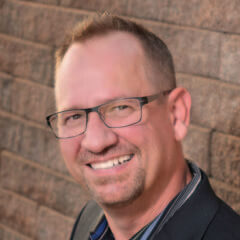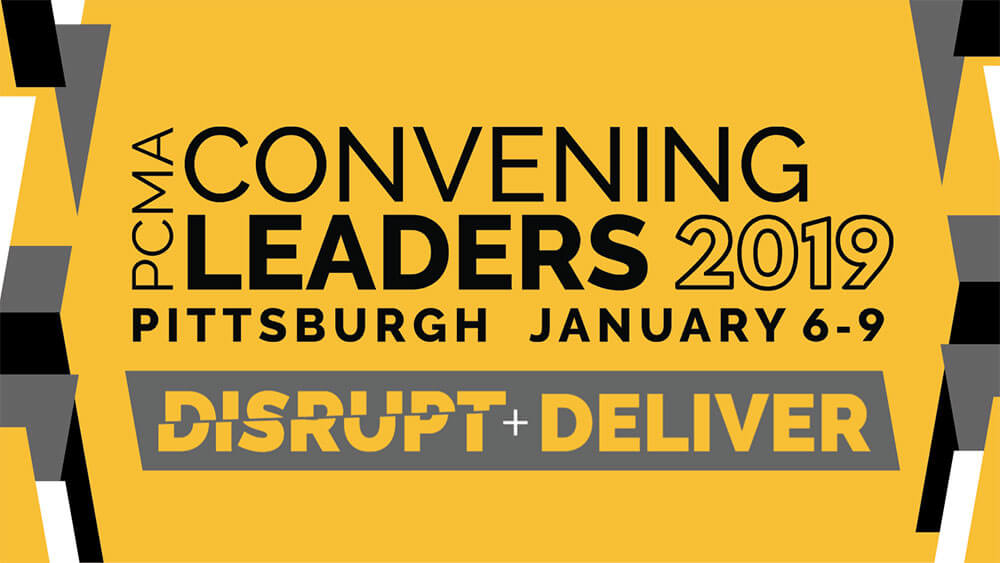
Dan Sundt
One of the most important shifts taking place in the meeting planner role is a growing focus on strategy. But Dan Sundt, chief eXperience officer of CXO Marketing Inc., wants to help event organizers take it a step further by using a tool that will help them create strategic alignment between their organizations and their events.
Sundt — a Pine & Gilmore certified experience economy expert — has years of expertience in experience design, and will share that as a tool during his interactive workshop at Convening Leaders. He talked to Convene about what participants can expect, what he sees as some of the biggest opportunities for growth in the events industry, and how to avoid “better sameness” when designing events.
Could you tell us about your background and your current experience at CXO Marketing?
Before CXO, I was a principal at an event design agency in Michigan that did a lot of corporate work specifically in the automotive arena. I led the Volkswagen and Audi teams and created a lot of their events, both for press for dealers and for customers. In 2008, I created CXO Marketing as a way for me to really do what I love to do, which is strategy and creative. So, that began as a consultancy in 2008, and that’s where it remains today. If I’m talking to a layperson, I tell them I help people who do events do them better. When I’m talking to somebody in the industry, I talk about using experience design as a tool to reach business goals.
Where do you see the biggest opportunities for growth in terms of the events industry?
For those of us who are in the meetings and events industry, strategy is the one place that we can go to make sure that we remain relevant, on target, and that we deliver the greatest value to our companies and our guests, our attendees. And the reason for that is the one constant. The technologies are going to come and go, and the face of events will continue to change and evolve, so where we need to be as professionals is in that strategy wing, making sure that whatever we come up with is on target, and to me, that represents the growth.
I think one of the interesting things that’s happening now is that [data] scientists are able to better measure real engagement. Engagement is one of those things that we’ve often talked about, but it’s really hard to get your arms around it because measuring engagement is a lot different than measuring outcomes through results.
So, I think that when we get to a point where there’s an elegant way to easily measure engagement, that’s going to be a game-changer. What that is going to do is help organizers show to all their stakeholders what kinds of elements and what kinds of designs indeed drive deeper levels of engagement.
How do you plan to conduct your workshop at Convening Leaders, and what do you think makes it truly interactive?
What we’ll do is use a variety of engagement techniques and a lot of pure dialogue to keep this hour and a half moving along. So, that’ll include lots of dialogue among attendees. There’s no one person in the room — myself included — that has all the answers. But there’s collective wisdom in the room, and I believe that by driving those conversations that that’s a huge part of it, but it won’t just be, “Here — discuss this at your tables.” We’ll be doing hands-on exercises and simulations and be able to use a variety of different techniques where the people in the room are talking a whole lot more than I am, ideally. I believe that [leveraging audience expertise] is a key to the future of events.
How will you create the framework for this conversation?
I’ll talk about strategy as a precedent to design and budgeting. It’s not just about being strategic — it’s about creating strategic alignment. I don’t want to waste a lot of time necessarily going through what strategy is or is not, but I do want to make sure that the participants come away with a tool that they can use to create strategic alignment. I think that creating strategic alignment is different than being strategic. It’s more active, it puts us in more of a leadership role.
When we have strategic alignment, design decisions are made much clearer because we all understand what the event is trying to achieve, and we won’t allow anything else to creep in because we’ve created alignment up front. So, a brief amount of time [will be] spent on that with the majority really being focused on experience-design tools that can come to life as a result of that strategic alignment, and [I’ll also discuss] how to foster engagement on a number of different levels.
What are the attendee learner outcomes you hope will result from the workshop?
One of the habits that’s easy to get into is to pull out last year’s files and modify them. You know, we’re all guilty of it. What happens, as a result, is we do get into this “better sameness.” The event changes a little, but it really doesn’t change a lot. When we can understand that and call it out, it makes it a lot easier to say, “This element doesn’t have anything to do with the strategy that we talked about. Why are we doing it, or why are we doing it that way?” I think the role of strategy identifies purpose from habit.
I want everybody to walk away having a much higher level of confidence in their ability to design experiences that are on target every time that achieve the objectives that give them more of a leadership role in the room. I want to allow attendees to really step into a feeling of a senior design role where they are at the table with the leaders of the organization, and celebrating victory on a regular basis.
Hands-On Learning
New to Convening Leaders 2019 is a series of workshops, which Carrie Johnson, PCMA’s senior director of education, said will “allow enough time for learning complex subjects and in-room application for knowledge retention.” The workshops are a direct result of feedback from participants who want a variety of session formats — from quick micro-learnings to these kinds of in-depth and interactive environments, she said.
The workshop topics include design thinking, branding, and event strategy (Dan Sundt’s session). The hands-on learning format has an added benefit — they “also give participants the opportunity,” Johnson said, “to build a community.”
Learn more about the Convening Leaders 2019 interactive workshops at conveningleaders.org.
Learn more about CXO Marketing, Inc. at cxomarketing.com.

